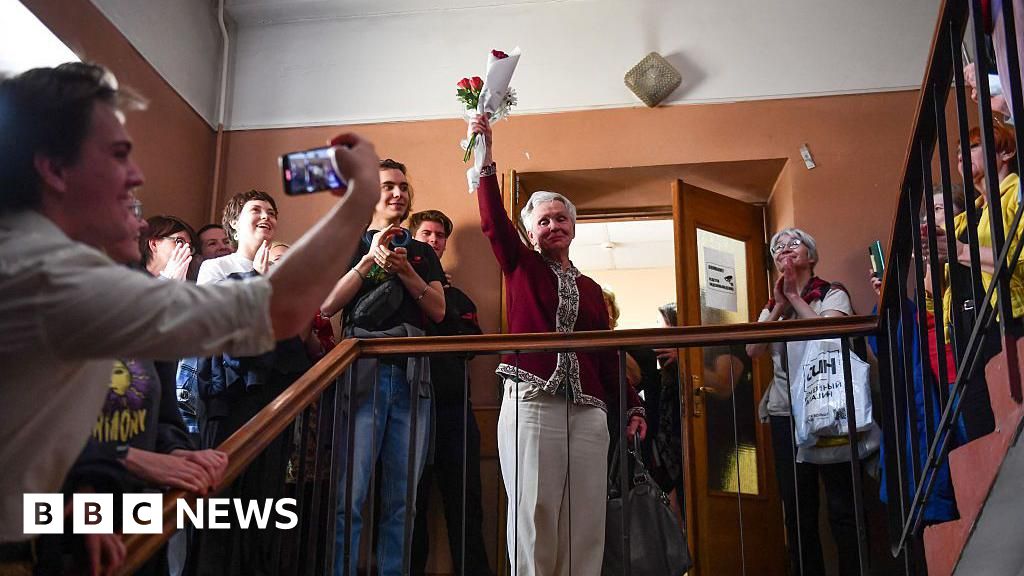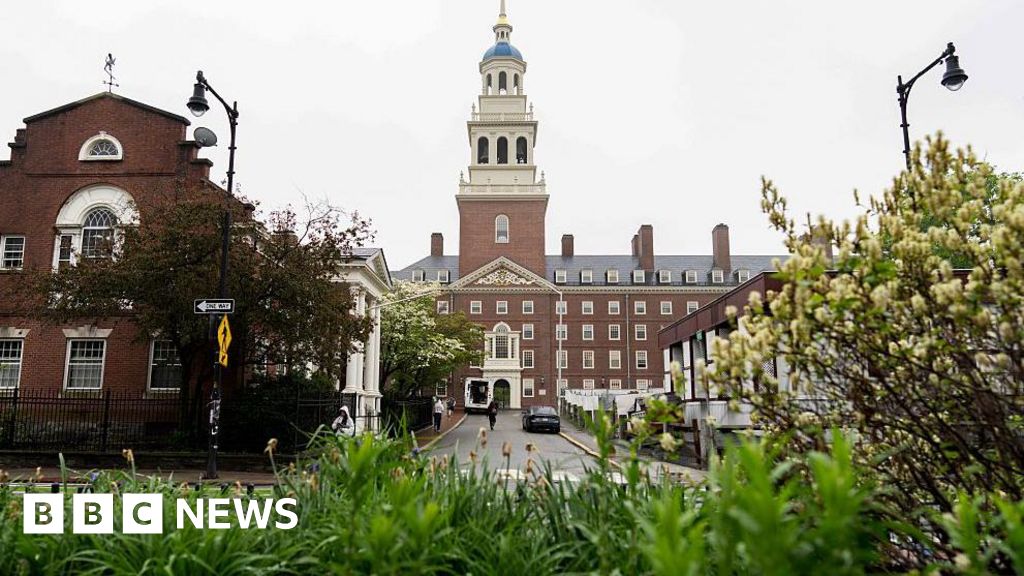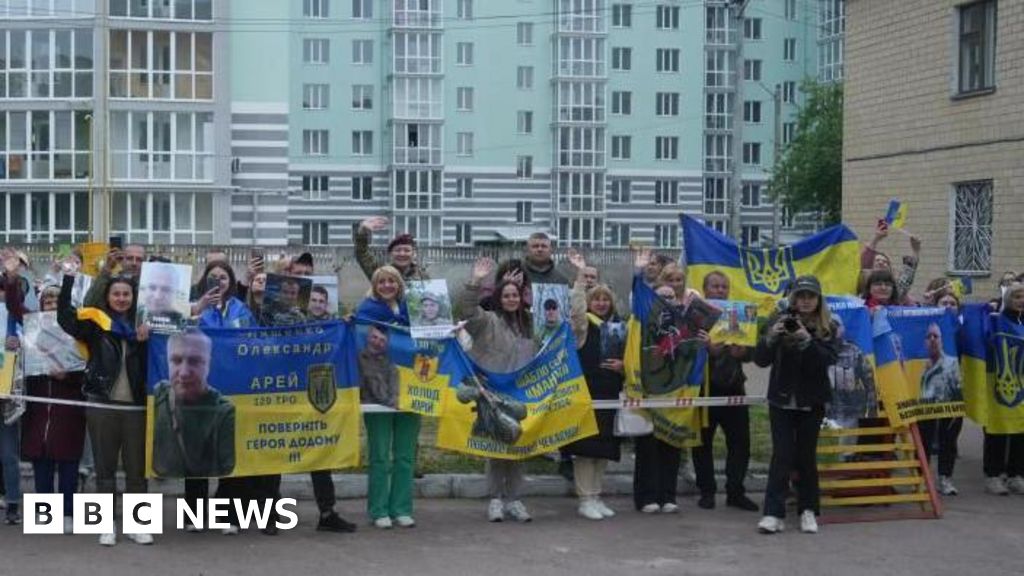ARTICLE AD BOX
By Steve Rosenberg
BBC News Vladimir, Russia
Ayten believes the Russian government has tried to persuade people they have an enemy
Drive four hours east of Moscow and you'll reach a picture postcard place.
The ancient Russian town of Vladimir is peppered with onion-domed churches and centuries-old white stone buildings. Under a blanket of snow, it looks even more magical: a Russian winter wonderland.
A medieval prince founded the town, the Grand Prince of Kiev. A reminder that, for all their current divisions and differences, Russia and Ukraine share common roots.
In a lane lined with ornate, brightly-coloured wooden houses, local residents are out with their snow shovels clearing the pavements. It's an opportunity for me to talk to people about what they think about tensions with Ukraine.
"My mother was born in Ukraine," Andrei tells me, "and I did my military service there back in the USSR. Russia and Ukraine are brotherly nations."
Andrei sees Ukraine as a necessary ally of Russia's
Brotherly nations. But with Moscow as Big Brother?
"Russia must have a sphere of influence," continues Andrei. "It's a superpower because of its military might. Small countries can choose who to ally with. But it's big countries that should help them decide."
Many Russians do believe the official messaging: the constant stream of claims in the state media here accusing America, Nato and Ukraine of trying to turn a cold war hot.
But at the central market in Vladimir, it's troubles on the home front - economic ones - which are at the forefront of people's minds.
"The situation in Ukraine is a worry, but so is the Russian economy," pensioner Lidia Ivanovna tells me. She's selling produce from her garden, including potatoes, carrots, marrows and eggs from her hens. She's desperate to supplement her meagre pension.
BBC
Prices are rising on everything. My pension is barely enough to survive on
With all the worries Russians have right now, from economic hardship to the coronavirus pandemic, I detect no appetite amongst the public here for a further military escalation in Ukraine, let alone a war with the West.
But that doesn't mean Russians don't believe such a war could break out. Many do.
In their small flat, a young couple, Ayten and Viktor, are drinking tea and sharing their views on the crisis.
"I don't feel any hatred coming from the West, Nato or anyone else," Ayten tells me.
"I think it's artificially made up. The Russian government's pushing this line. They want us to hate. They want us to imagine that there is an enemy. There must be an enemy, otherwise people will focus on the problems they have and will start being unsatisfied. That's not what the government wants."
I put a counter-argument to Ayten that you sometimes hear in Russia, that as a great power it should be able to dictate to other countries, and therefore Europe should listen.
"I don't really think that this threatening politics should be a tool in 2022," she replies. "To think that people should respect you because you are threatening to destroy them. We should probably change the line here, because we are not in the Middle Ages."
So will Russia de-escalate? Will there be compromise or conflict?
That will depend on the other Vladimir. Russia's current leader. Back in Moscow.
Watch: Understand the Ukraine crisis with Ros Atkins in less than six minutes

 3 years ago
40
3 years ago
40








 English (US) ·
English (US) ·